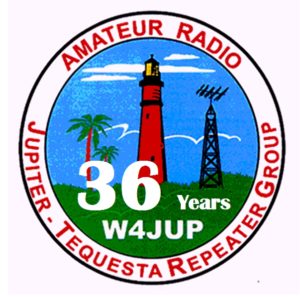


JTRG seeks to embrace all aspects of Amateur Radio, both as a hobby and the community service it provides. As such, we encourage our members to continue to embrace, The Code of the Amateur Radio Operator, established in 1928, by Paul Segal-W9EE
- Considerate: He never knowingly uses the air in such a way as to lessen the pleasure of others.
- Loyal: He offers his loyalty, encouragement and support to his fellow radio amateurs, his local club and to the American Radio Relay League, through which amateur radio is represented.
- Progressive: He keeps his station abreast of science. It is well built and efficient. His operating practice is above reproach.
- Friendly Slow and patient sending when requested, friendly advice and counsel to the beginner, kindly assistance, cooperation and consideration for the interests of others; these are the marks of the amateur spirit.
- Balanced Radio is his hobby. He never allows it to interfere with any of the duties he owes to his home, his job, his school, or his community.
- Patriotic His knowledge and his station are always ready for the service of his country and his community.
Guidelines Governing the Conduct and Use of the Jupiter Tequesta Repeater Group (JTRG) Amateur Radio Club’s Repeaters
- The Repeater Trustee will have the final say on any repeater operation, since they are the final authority, as per the FCC Rules Part 97, and shall act as Controller, unless delegated to other.
- Use of the word “BREAK” shall be used to designate a HIGH PRIORITY need. In that event, all other stations on the frequency must cease operation immediately, or assist the breaking station as required. Stations may resume normal operation only after the emergency has been handled. Emergency and Special Event communications have priority over other repeater communications usage. All special events for which the repeaters are to be used shall be coordinated and authorized through the Repeater Trustee, or their designate, prior to usage, with the Designation of a Net Control Station facilitated. Emergency communications has priority usage and complete control of the repeaters for as long as the emergency exists.
- Time controlled or net traffic will be given priority.
- The repeaters will be primarily used for local traffic and is open for ALL Amateur Radio Operators.
- Control Stations will not discourage anyone from using the repeaters.
- During all Events, any control station initiating the repeater transmissions is responsible for either passing the repeater over to another control station or, in proper form, Shut Down the repeater event when that station leaves the air.
- Identify your station ID every ten minutes during you QSO and at sign-off, as per FCC regulations. It is not mandatory for you to identify when first coming on the air, however for ease of operation and courtesy to the others on the frequency, please ID when coming on the air.
- Conduct on the repeaters should be governed by common sense and courtesy. Do Not conduct conversations that may be considered unprofessional or communications typically associated with “CB” nomenclatures. Business messages are not permitted on the repeaters. Misconduct may result in loss of repeater usage privileges.
- All stations will leave a short pause between transmissions for the purpose of allowing other stations to call on the repeater.
- Calling stations will keep their calls short, such as a one or two line monologue and then stand by until the frequency is clear.
- Base stations should stand aside for mobile stations.
- If you hear stations jamming or interfering do not make any comment. If you can override the interference, continue with your conversation. If you can not continue, sign off the repeater in a normal manner.
- Music is NOT tolerated on amateur radio, except retransmission of NASA audio during ISS transmissions. When using auto-patch, if you call a company and they have Muzak or other music on their phones while you are on hold, you must end the call immediately. Remember, as an amateur radio operator, you are responsible for the repeater, not the company you called. If in doubt DON’T DO IT.
- If you hear someone not following these guidelines or violating an FCC Regulation, don’t assume they are intentionally doing so. Everyone can make mistakes. You may offer them the benefit of your knowledge at that time in a helpful, friendly manner. It is neither helpful nor courteous to berate anyone over the air. If there is further concern, advise a board member and/or fill out an official observer report (available from the Repeater Trustee).
- Repeater Guidelines may be changed by the Repeater Trustee in coordination with the JTRG Club Repeater Committee. Users shall be notified of changes.
- A PL Tone of (110.9 Hz) will be needed for access of the 2m and 70 CM repeaters at all times.
- No discussions of repeater codes should take place on the air. If you have a question about proper repeater communications protocols, call a control operator on the phone.
- The repeater is always available, except for maintenance, service utility interruption, or deliberate interference.
[DISPLAY_ULTIMATE_PLUS]
